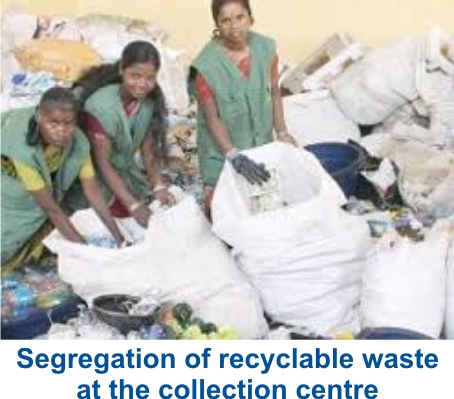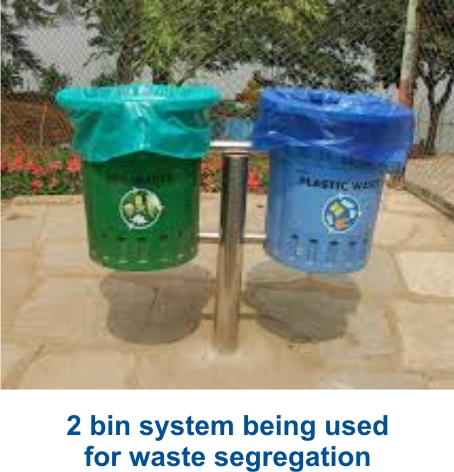|
Is 100% Source Segregation
of Solid Waste Possible:
With a mission to effectively manage different kinds of waste generated in the country, the Indian government has released new and amended rules to manage solid, plastic, hazardous, electronic and biomedical wastes. The new rules and guidelines for their implementation were issued in 2016 by the Ministry of Environment, Forests and Climate Change, with an aim to standardise waste management practices in the country. The implementation of these rules would also significantly contribute to betterment in public and environmental health in the country.
At present, most Indian cities dump the entire quantum of their
municipal solid waste into unscientific dump sites, whilst only
partially separating recyclable material through an unorganised network
of ragpickers and informal recyclers. Such rudimentary disposal
contributes to contamination of land by leaking leachates into the
ground, contamination of air by releasing methane into the air leading
to self-ignition of the waste piles and endangering public health.
Typically, a remarkable portion of the waste is organic and
biodegradable, implying that an efficacious segregation mechanism can
aid production of quality compost for landscaping and a Tirunelveli, a small city in the state of Tamil Nadu has been announced as the first to have achieved 100% source segregation of municipal solid waste. The city has a population of 4.8 lakhs and has been actively striving to execute the Solid Waste Management Rules 2016.
The local municipality worked diligently to achieve the target by aptly
designing awareness generation programmes, effective collection
mechanisms and proper treatment facilities. The initiative was launched
in October 2016 and mandates collection of well segregated biodegradable
and non-biodegradable The organic biodegradable waste is collected by the municipality on a daily basis while plastic waste is collected only once a week on Wednesdays. To promote ownership and compliance, the sanitation workers of the municipality visited individual households and procured undertakings from the residents. The two-bin system was also put into place by distributing free bins to all households. The Commissioner also wrote personal letters to each to add value to the campaign. The households are charged Rs. 10 to support the practice and have, over the last 6 months, been hugely supportive. On Wednesdays, when the non-biodegradable waste is to be collected, all the municipality staff is deployed on outdoor duty wherein they personally go and supervise the collection tour across the municipality's work area. This sustainable initiative comes at the time when all Indian cities struggle to scientifically manage their municipal waste. The challenge is even more critical in metropolitan cities with unplanned expansion, booming population and modernised lifestyles that add significant amounts of plastics and other synthetic materials into the waste stream. Collective efforts from the local bodies and the citizens will go a long way in improving the waste management scenario in the country. ■
Kavya Arora
Reference: |
 griculture.
The need of the hour is to curtail our waste generation by recycling to
full potential and scientifically managing the remaining waste stream.
In this regard, many successful practices have sprung up at the local or
municipal level. These include extensive public participation in
addition to provision of the requisite infrastructure and coordination
by the managing body.
griculture.
The need of the hour is to curtail our waste generation by recycling to
full potential and scientifically managing the remaining waste stream.
In this regard, many successful practices have sprung up at the local or
municipal level. These include extensive public participation in
addition to provision of the requisite infrastructure and coordination
by the managing body. waste from all establishments and households in the city. Regular
campaigns and drives were organised to promote segregation of waste, in
addition to involving religious leaders and local NGOs for mobilising
the initiative in the public sphere. The programme gained momentum
through media campaigns on local radio and television.
waste from all establishments and households in the city. Regular
campaigns and drives were organised to promote segregation of waste, in
addition to involving religious leaders and local NGOs for mobilising
the initiative in the public sphere. The programme gained momentum
through media campaigns on local radio and television.